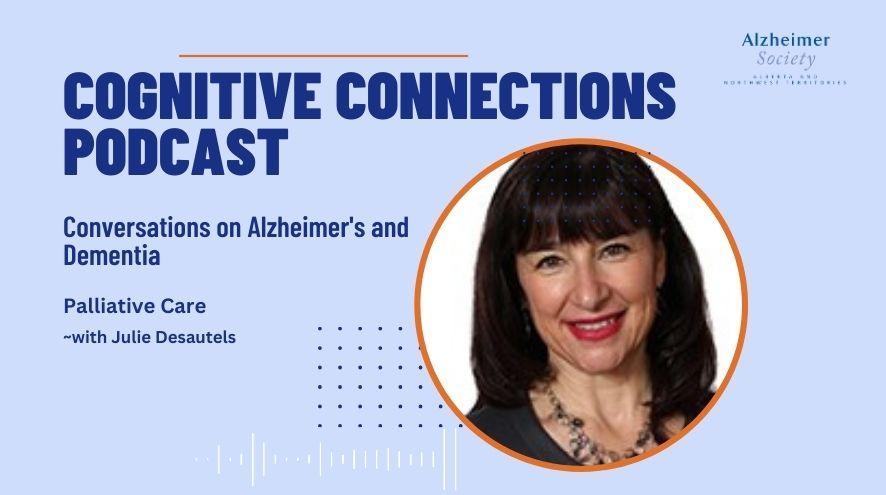A Guide to Legal Affairs and Charitable Giving
We talk about the crucial aspects of legal affairs, charitable giving, and the lasting impact these considerations can have on families going through a dementia journey.

Welcome to another episode of Cognitive Connections Conversations on Dementia. In this episode, we had the pleasure of speaking with Doris Bonora, a partner with Dentons Canada, specializing in wills, estates, and trusts. Our focus in this episode was on the crucial aspects of legal affairs, charitable giving, and the lasting impact these considerations can have on families going through a dementia journey.
The Importance of Legal Affairs in Dementia Care
Doris emphasizes the importance of having legal documents in place when a family member is diagnosed with dementia. Two key documents, the personal directive and enduring power of attorney, allow individuals to appoint someone to make decisions on their behalf. These documents provide peace of mind for family members and maintain the autonomy of the person with dementia.
Doris emphasized the necessity of an up-to-date will, describing it as a gift to one's family. "Not having a will and not having an up-to-date will really just leaves a mess behind for others."
Without a will, settling an estate becomes complicated. With a will in place, individuals can ensure their assets are distributed according to their wishes.
Make a Difference: Charitable Gifts & Leaving a Legacy
Doris encourages everyone to take a moment to consider how you can make a difference today. One impactful way is through donating, providing vital support to organizations like the Alzheimer Society.
Doris discusses the benefits of leaving a charitable gift in one's will; it is a perfect time to give back to charities that have been significant. Beyond personal fulfillment, “it is a time when you don’t need money. And secondly, there’s a big tax benefit to giving a charitable gift on death."
Highlighting the significance of leaving a legacy through charitable giving, Doris notes that individuals can impact their communities by supporting causes dear to them. Whether funding scholarships or supporting medical research, charitable gifts ensure that one's values endure.
"You can very much impact through your gift how you’re going to do that. And it could be that your name or your family name is always left behind as a sign that you were here, that you contributed to the community."
Seeking Professional Guidance
Doris acknowledges that it can be hard when discussing legal affairs and end-of-life planning. However, professionals specializing in dementia care can provide a supportive environment for these conversations. She encourages individuals to approach these discussions with their goals in mind and rely on the expertise of lawyers to guide them through the process.
Doris addresses the issue of denial, suggesting that even if someone is in denial about their diagnosis, families can work with lawyers to draft neutral documents. These documents can be signed without coming into the lawyer’s office, ensuring legal affairs are in order while respecting the individual's feelings and autonomy.
The Impact of Charitable Giving
"The Alzheimer’s Society provides this amazing support, either in support groups or its amazing ability to provide education for this disease that can be quite devastating for families. It is why I love working with the Alzheimer Society. I mean, the staff are amazing, but the support that it provides to the community is astounding."
By leaving a charitable gift in one's will, individuals can contribute to the ongoing work of organizations like the Society, ensuring vital support and care continue for future generations.
Conclusion and Future Outlook
As we continue to raise awareness about dementia, prioritizing legal affairs and charitable giving becomes integral. By addressing these aspects, we can work towards the goal that individuals with dementia and their families receive the support they need and deserve.
Remember, every conversation counts, and by taking proactive steps to plan for the future, we can make a real difference in the lives of those touched by dementia.
For more information on programs and services, please visit:
- Seeds of Hope Family Learning Series,
- The Alzheimer Society’s Programs and Services
Thank you for joining us on this episode of Cognitive Connections Conversations on Dementia. Listen to the full episode wherever you get your podcasts and on YouTube. Stay tuned for more enlightening discussions as we continue to unravel the intricacies of dementia.
